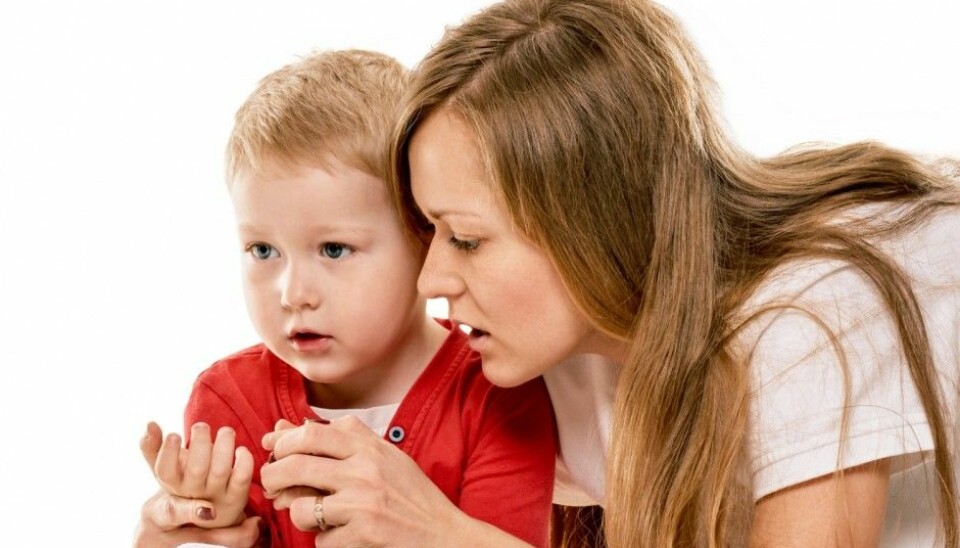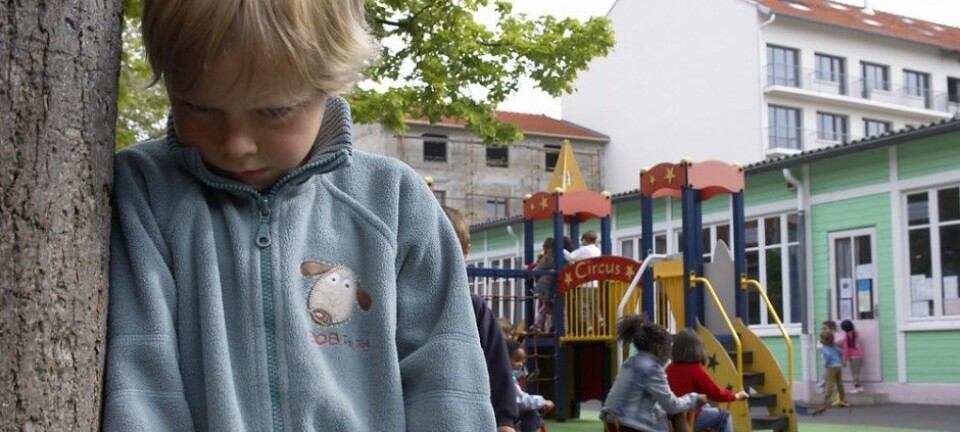
How do you talk to a child if you suspect sexual abuse?
It’s the conversation that no adult ever wants to have with a child, but sometimes must. Here’s how to handle the situation.
Victims of sexual abuse rarely want to talk about what has happened. For children, the situation may be even more complicated. So what is the best way that adults can talk to children if there are concerns that the child may have been abused?
It is important to give children and young adults the opportunity to talk about what's bothering them, says Åse Langballe at the Norwegian Centre for Violence and traumatic stress.
“A parent can say, ‘I can see you’re struggling with something. Is there anything that is bothering you?’ “, she says.
"If we stay there with them, and put our newspapers and iPads away, then the children will often invite us in."
Langballe has studied how police interrogate children in cases of suspected sexual abuse. She has also looked at how these conversations are handled by child welfare services and special education teachers.
Teachers can be key
Teachers work closely with children, and if they have a feeling that something is not right, they have to ask the hard questions.
Langballe tells teachers that there are two ways that they may enter into these conversations.
“One is where a child says something like for example, ‘Nobody loves me at home’, or ‘I don’t want to go home’."
Now it's up to the teacher to follow up on what the child has said, for instance by referring to what the child just said.
"The teacher can say something like 'You said you don’t want to go home, or you said that you didn’t want to go on a trip with that person — I would like to hear more about it.'"
The child’s comments have given you an opening. Your response, a question, shows that you are interested, ready to listen and are willing to talk about it.
- RELATED: Researcher recommends teachers talk to students about sexual abuse
- RELATED: Violence and abuse in childhood linked to more stress hormones in pregnancy
Ask open questions
It's also possible that the child has not said anything, but the teacher can see that something has changed. Maybe the child seems sad, is less socially active or his or her school performance is not what it used to be.
Langballe suggests that the teacher approaches the child and says something like “I want to talk to you. I wonder what it's like to be you right now? I see that you aren’t playing with your friends as much as you used to.”
"It may be that the child will look at you with that direct child’s gaze and ask: Do you really want know?", she says.
Slike spørsmål åpner opp og viser at du er interessert, ifølge Langballe. Samtidig gjør du ikke antakelser som kan slå feil ut i samtalen.
According to Langballe, these kinds of questions show that you are interested. At the same time, they avoid making assumptions that might play out wrong in the conversation.
“Initially, it’s important not to make assumptions, and give the child time. Otherwise you can really make a big mistake,” she says.
For example, you might find that what is bothering the child is something completely different than what you think. Or your questions may be too direct, which may make the child withdraw.
“All of the research on this shows that most children do not necessarily talk about the abuse they have suffered. It may take until adulthood before the issue comes out. We shouldn’t push too hard,” Langballe says.
Be careful, but be willing to ask
Another potential pitfall is asking leading questions, Langballe said.
Asking a child a leading question such as, “Does your father touch your penis?” can affect the child's narrative and be problematic for both police reporting and any potential court proceedings, she said.
Once again, open questions are the best, Langballe says.
Two potential questions might be: “Is there someone who is doing something to you that makes you afraid?" or “Are there adults who do things with you that adults should not do?”, she said.
But we do have to dare to ask, and help the child to talk about it when there is good reason to believe something is going on.
No sure signs of abuse
Children rarely show sure signs of sexual abuse, says Dag Øystein Nordanger, a senior researcher and clinical specialist in child and adolescent psychology at Uni Research Health, Regional Centre for Child and Youth Mental Health and Child Welfare. But they do have ways to express their problems, he said.
“Younger children in particular can be restless and demanding, or have trouble concentrating. Some children may react in a manner that could be confused with behavioural problems,” he said.
The youngest children may show signs of what scientists call social withdrawal. They are introverted and participate less in play and other forms of social interaction. Social withdrawal can be seen at any age, but young children are basically very social.
“If they withdraw into themselves, it might be the only way they have to protect themselves,” Nordanger says.
Older children who are experiencing abuse may instead act out, he says.
Ask if what they say makes you wonder
On the other hand, Nordanger says, many of these behaviours may be nothing to worry about, and it is important not to be overly suspicious. But adults should pay attention if children show overly sexualized behaviour, he said.
“An example of this is that that they know things about sexuality that most children aren’t familiar with,” he said, such as details about genitals or different kinds of sex. In this case, an adult should ask questions, he said.
“A rule of thumb is that when they say something that makes you wonder where they learned about what they said, you should ask openly, ‘Where did you hear that? Did someone tell you or have you seen that?’,” Nordanger said. “This can open a little window for a child to say what is going on.”
———
Read the Norwegian version of this article at forskning.no
This article was updated on November 24 in order to change a few mistakes that happened in the translation from Norwegian to English.


































